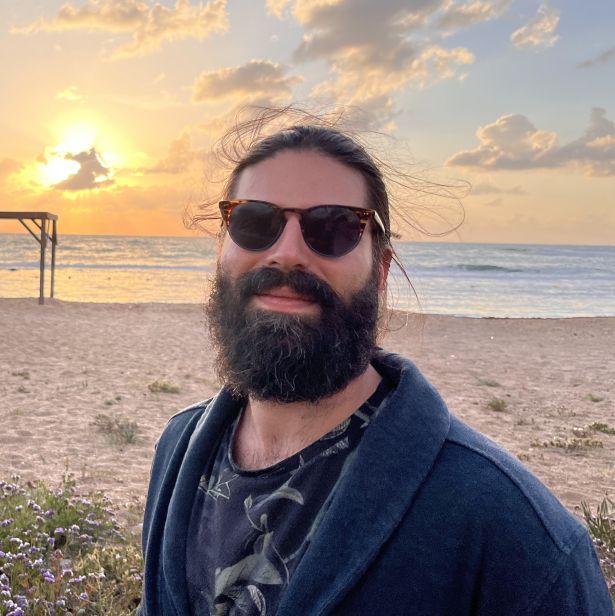ZTF Faces
This section features PhD students, postdocs and young faculty who are part of the global ZTF collaboration.
Ido Irani
PhD at the Weizmann Institute of Science, Israel
Where was your starting point and how did you discover astronomy?
I grew up in the university town of Rehovot, south of Tel Aviv. As a child, I was a passionate science lover. While I didn’t specifically want to be an astronomer, I remember being enthralled by the stars. I had a small booklet with pictures of constellations. My favorite page was the one showing the life cycle of a star - from a cloud of gas to a supernova. After my military service, I went on to study physics in the Hebrew University in Jerusalem, and later to the Weizmann Institute in my home town of Rehovot for graduate studies. I loved my graduate cosmology course and decided (almost spontaneously) to focus on astronomy. I study supernovae today and I fondly recall my favourite picture from that booklet.
How did you discover ZTF?
At the observational astronomy group at Weizmann, I started working with Prof. Avishay Gal-Yam on the host-galaxies of supernovae for my master’s degree. I studied peculiar host-galaxies of Type II supernovae from ZTF that exploded in elliptical galaxies - where no such supernovae are expected.
What are you playing with in the ZTF playground?
I’m now in my 5th year of graduate school at the Weizmann Institute. I am studying “infant” supernovae - discovered with ZTF only hours after they explode. When we find such a supernova (even if it’s the middle of the night), we go into ”operational” mode - trying to trigger as many observations as possible - in particular in the UV wavelengths since these supernovae are so hot so soon after they exploded. My recent paper was a large sample of Type II supernovae with very early UV observations. This would not be possible without the incredible high cadence capabilities of ZTF.
Where do you want to steer your rocket in the future?
Recently, I’ve become very involved in setting up a new observatory in the Israeli Negev desert. I love time-domain instrumentation work, and I hope to find a postdoctoral position doing this in the near future. I’ll be working on a new spectrograph until then.
If you were not an astronomer, what would you be?
This is a really hard question, since there are so many interesting options out there. I was always very interested in Biology (my BSc was a dual biology-physics degree). If I were not an astronomer, I would probably do biophysics. Although I’m equally interested today in history and geopolitics, and might have gone into something more related to that eventually.
A book that shook your worldview?
There are many options - but if I have to name one that reflects my current worldview it would have to be Team of Rivals by Doris Kearns Goodwin. This book made it possible for me to visualize a different time and place in history with strong political tensions - the civil war in the US, and how it might have felt to live through it. It made the whole experience of reading the news different.
If you’ve had a bad day at work, you will….
Cook something while listening to a trashy fantasy/sci-fi audiobook. It’s hard to listen while not doing anything, and this way I get to eat something nice at the end.
